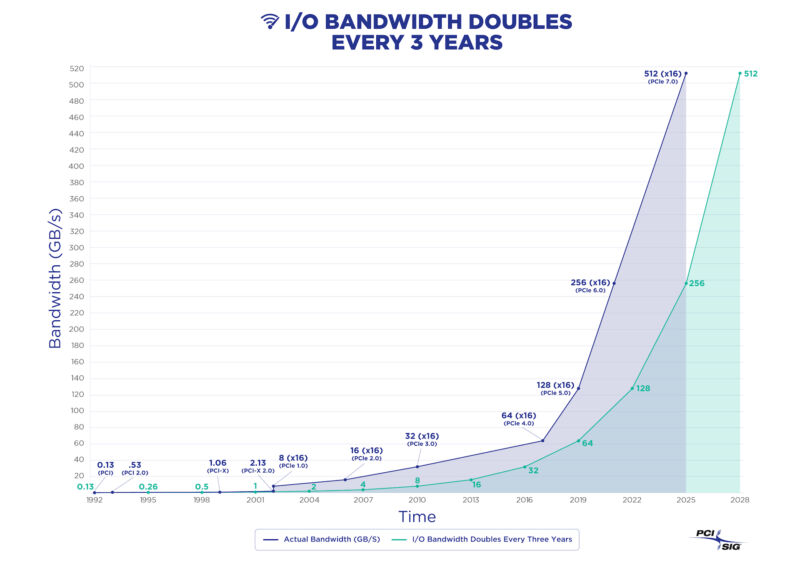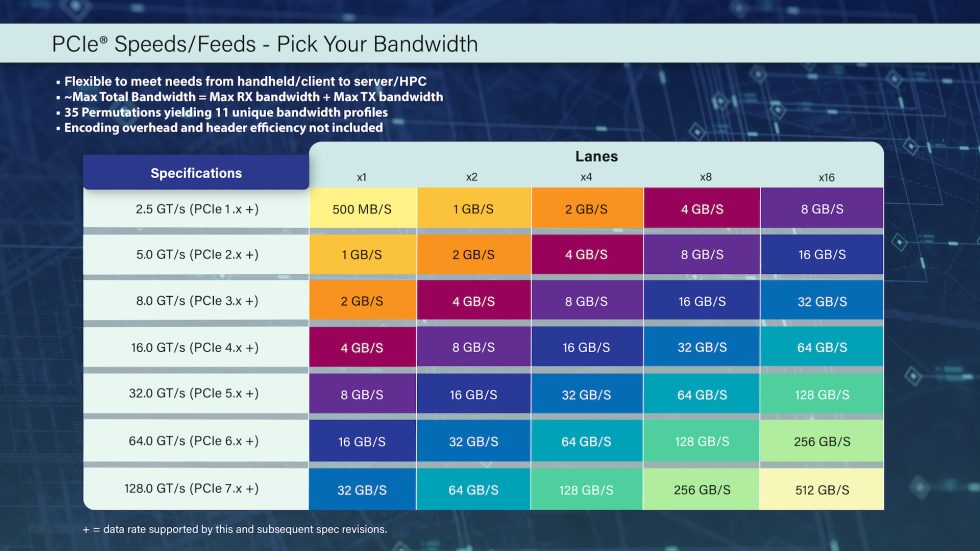PCI Express 7.0 standard provides eight times the bandwidth of today’s connections

Enlarge / Doubling PCIe bandwidth every three years means lots and lots of bandwidth for next-generation accessories. (credit: PCI-SIG)
The group responsible for developing and updating the PCI Express standard, the PCI-SIG, aims to update that standard roughly every three years. Version 6.0 was released earlier this year, and the group has announced that PCIe version 7.0 is currently on track to be finalized sometime in 2025. Like all new PCI Express versions, its goal is to double the available bandwidth of its predecessor, which in PCIe 7.0's case means that a single PCIe 7.0 lane will be able to transmit at speeds of up to 32GB per second.
That's a doubling of the 16GB per second promised by PCIe 6.0, but it's even more striking when compared to PCIe 4.0, the version of the standard used in high-end GPUs and SSDs today. A single PCIe 4.0 lane provides bandwidth of about 4GB per second, and you need eight of those lanes to offer the same speeds as a single PCIe 7.0 lane.

Putting PCIe 7.0's speed increases in context. Today's SSDs and GPUs mostly use PCIe 4.0, and PCIe 5.0 is just beginning to be adopted by newer PCs. (credit: PCI-SIG)
Increasing speeds opens the door to ever-faster GPUs and storage devices, but bandwidth gains this large would also make it possible to do the same amount of work with fewer PCIe lanes. Today's SSDs normally use four lanes of PCIe bandwidth, and GPUs normally use 16 lanes. You could use the same number of lanes to support more SSDs and GPUs while still providing big increases in bandwidth compared to today's accessories, something that could be especially useful in servers.
Read 2 remaining paragraphs | Comments